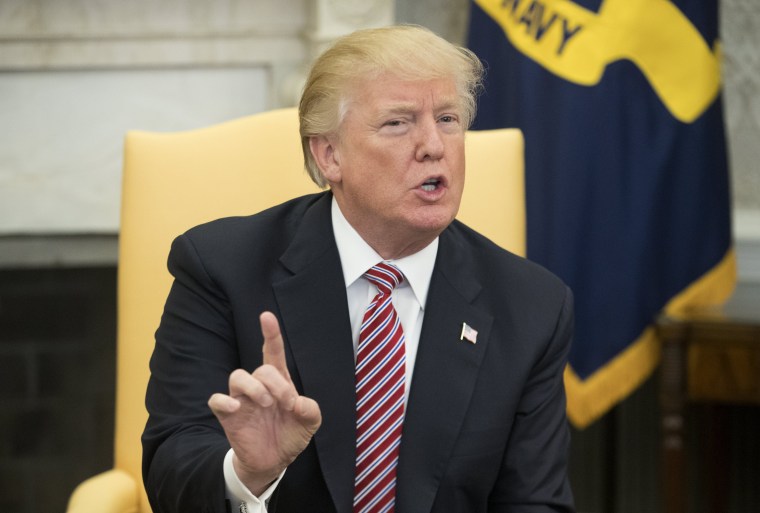In recent weeks, Democratic leaders and officials have made clear that they will not use materials hacked or stolen by foreign entities in the 2020 elections. The goal, of course, is to discourage the kind of intelligence operations Russia launched against the United States in 2016.
As part of the same Democratic announcement, the party has challenged Republicans to make the same commitment, but those appeals have generally been met with awkward silence. This seemed to open the door to additional foreign intervention in our electoral process.
Yesterday, however, Donald Trump sent a slightly different signal.
President Donald Trump said Monday that he would agree not to use any information hacked or stolen by foreign adversaries in his 2020 re-election campaign."I would certainly agree to that," Trump told reporters during an event with the Hungarian prime minister at the White House, when asked if he would make that commitment. "I don't need it. All I need is the opponents that I'm looking at. I'm liking what I see."
So far, so good. The Republican said he's prepared to forswear campaign dirt stolen by foreign entities for the simple reason that Trump believes -- or at least says he believes -- that he can win in 2020 without the assistance of his benefactors abroad.
But as part of the same Oval Office exchange, the president added, "Well, I never did use [information stolen from a foreign adversary], as you probably know. That's what the Mueller report was all about. They said, 'No collusion.'"
And the problems with this part of Trump's position clearly overshadowed the more encouraging aspects of yesterday's answer.
In fact, the president's posture was tough to defend. When he said he "never" used information stolen from a foreign adversary, for example, it was a rather transparent lie: candidate Trump enthusiastically embraced WikiLeaks and the information it disseminated after Russian operatives stole Democratic materials. Indeed, in the month leading up to Election Day 2016, Trump cited WikiLeaks 141 times.
For the president to argue now that he "never" used foreign dirt suggests Trump believes our memories are short.
Complicating matters, while the president assured everyone yesterday that he had no interest in foreign election intervention, we learned just last week that one of Trump's personal attorneys, Rudy Giuliani, has been trying to work with investigators in Ukraine to boost the American president's re-election prospects.
But just in case that wasn't enough, let's not overlook the fact that Trump continues to talk about Special Counsel Robert Mueller's report in ways that suggest he has no idea what it says or even the questions it intends to answer. To hear the president tell it yesterday, the Mueller report was "all about" his refusal to use dirt stolen by Moscow.
That's not even close to being correct. In fact, to quote the Mueller report directly, it said Trump's political operation "showed interest in WikiLeaks' releases of documents and welcomed their potential to damage" Hillary Clinton -- and then there's the Trump Tower meeting in which the president's team sought Russian campaign assistance.
All of which leads one to wonder whether Trump's vow yesterday came with some fine print. When the president said he'd agree not to use materials stolen by foreign sources, was Trump really only committing to go as far he did in 2016? Or put another way, did the president promise to meet the same standards he set in his first election?
